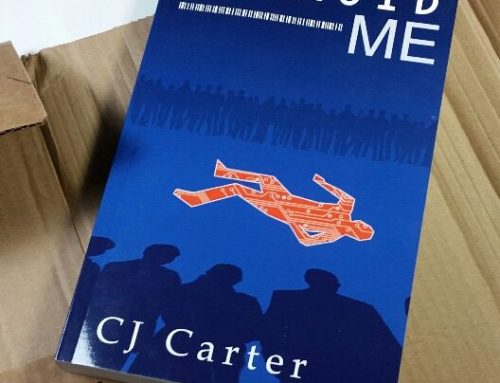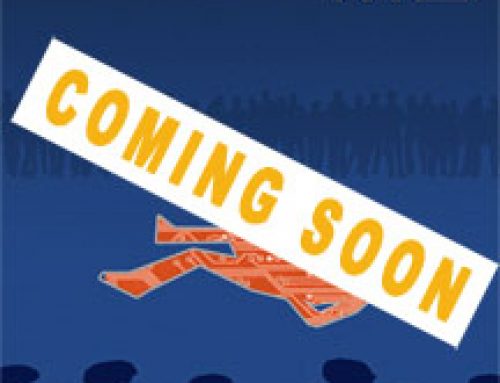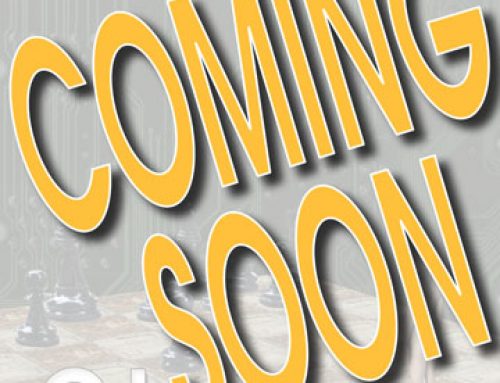My native language, English, has been the bane of my existence as well as one of the most marvelous playthings that I could have ever hoped for. Its rich vocabulary and flexible structure combine to give the best, and worst, of both worlds. While I’ve learned a fair amount (or less) of several other languages, I always treasure the joy of being a writer of English.
Writing starts at a very early age. It sort of comes part-and-parcel with the whole “becoming literate” experience. I think it’s fair to say that the first thing most of us stumble over is spelling. Given English’s tradition of being a sort of melting-pot middle ground of languages, it has tended to inherit the letter-ordering idiosyncrasies of many of the world’s languages. We need look no further than “-ough” to demonstrate how confusing this language is. Through, cough, hiccough, plough, tough, thought, and all of their ilk are enough to thoroughly confuse any child.
But it’s in these difficulties that so many opportunities can be found. Who among us, in America at least, doesn’t at least sometimes type “thru” instead of “through”. In fact, “thru” is probably much more common in some situations — such as shortening series — where it disambiguates meaning.
Hopefully there aren’t grammarians out there pulling their hair out because I used “hopefully” at the start of this sentence in the Germanic tradition of “it is to be hoped that” instead of the more strict interpretation of “full of hope”.
But this isn’t going to be a musing about English’s abnormalities. Richard Lederer covers the topic much more completely, and entertainingly than I could ever possibly hope to in a hub. No, this is more about how the ever-evolving nature of this tongue affects and effects writers. How beholden must we be to what has gone before? How much do we, or should we, adapt to current changes? Since we are the actual wielders of these lexicographic tools, though not the gatekeepers, to what extent should we try to influence language on our own?
Do These Make Me Look Fad?
Perhaps the first thing we writers should consider is how accessible we want our work to be. Are we writing specifically to some of our contemporary readers, or do we have larger aims of having our products read for years, nay…decades, to come? If we write in a modern patois, how long before our work starts becoming dated?
Too often, critics will blast a work for this sort of thing. That the language will be dated in only a few years. That future readers won’t be able to embrace a work if only because it isn’t adhering to their strict interpretation of language conventions. Much as Dickens isn’t read. Or Austen. Or Twain. Or…well, you see my meaning. Just because a work is contemporary, and makes use of the style of the time, doesn’t mean that people won’t understand or embrace it later. In fact, it could possibly be argued that by not making your work stand out from the pack, yours is actually LESS LIKELY to endure the shifting sands of safe linguistic shores.
Still, restraint should be shown — if only because you don’t want a publishing house to pass on it. thng is if u chuz 2 rit ina txt styl, it mite not pass th tst :-) Yes, the style is clearly contemporary, and an argument could be made for trying to create something readable out of it, but is it TOO contemporary? Who can predict? For all we know, this is exactly where written language will head. Though sparse and economical, it’s still understandable by native speakers of the language. In some ways it’s reflective of the current written languages around the globe that eschew vowels.
While I don’t actually think that much of the quirks of our technological age will endure past the fad stage, I wouldn’t be surprised if some elements lasted a long time. Not having capital letters except for proper names and ornamentation seems like it could have legs. Since we actually use sentence ending punctuation, we don’t need the clues that start-of-sentence capitalization provided to less punctilious times. And when start-of-sentence capitalization wanes, so too will the capitalization of our first-person pronoun, “I”. Basically, we all become e. e. cummings.
 Then there are the emoticons. They are widely bemoaned, but I think they do fill an important weakness in our written language. Yes, they do get rather silly sometimes — honestly, how often is anyone likely to use =):-)= [Abraham Lincoln]? Even so, :-) and :-( can convey a raw sense not only more economically, but perhaps better than words can alone. That they have persisted is a testament to their utility. Purists will doubtless want to hit me in the smiley with a shovel right now, but this is how language evolves. It finds needs and adapts to fill in the holes.
Then there are the emoticons. They are widely bemoaned, but I think they do fill an important weakness in our written language. Yes, they do get rather silly sometimes — honestly, how often is anyone likely to use =):-)= [Abraham Lincoln]? Even so, :-) and :-( can convey a raw sense not only more economically, but perhaps better than words can alone. That they have persisted is a testament to their utility. Purists will doubtless want to hit me in the smiley with a shovel right now, but this is how language evolves. It finds needs and adapts to fill in the holes.
Give Me Liberty, Or Give Me…oh, what’s the word?
I ran into this same hole-y problem with my most recent novel (yet to be published). I created a SF world where the main species had no specific gender. Clearly I was going to have to make some serious pronoun choices. I opted to go down the road less traveled and neologized the pronouns to fit my needs. It actually turns out that there are three gender-less pronoun systems out there, but I couldn’t embrace any one of them. I took and adapted what I thought was the best features of all of them and created my own, also with an eye toward not favoring any specific culture or language. I like to think that the risk works, but the proof of the printing is in the publishing (and buying), so the jury is still out on that.
I think it’s just those sorts of liberties we, as writers, should take. After all, we get away with things that school kids don’t. It’s understood that we do know the rules of our language, and that when we stray it is for a reason, not just because we don’t know what we are doing. If there are problems with the language, then it’s sort of up to us to deal with them. Most of it will be ignored or forgotten, but every now and again something sticks.
Despite the fact that I’m sounding all anarchist and revolutionary, the fact remains that I also embrace the stability of language. When I read texts from before the spelling/dictionary revolution, I cringe at not only the creativity of spelling choices, but also how often they are inconsistently used by the same author in the same work. Standardized spelling has helped writers and readers considerably, though I do wish it was easier. So have many writers in the past. There have been several attempts over the past couple of centuries to simplify the spelling rules of English. Many other languages are spelled and spoken very consistently. English…not so much. And nothing much has come out of the attempts to reform our inconsistency. Apparently, there is only so much even a small group of writers can do when the public chooses not to be moved.
My passion for what choices writers have with words is born from my love of Shakespeare. While he might not be quite the word-creator that he is sometimes attributed as being, there is little doubt that his felicity with the language was masterful. Despite the “new” words, the contemporary punning, and other such conceits that should have made his 400-year-old works as inaccessible as untranslated Chaucer is, the language is still fresh and vibrant. (Clue to school kids: don’t read it like poetry. Just read it straight and quickly, skipping words you don’t understand. It’s easier to get through that way, and it’s much easier to understand.)
We could do worse than emulate the example of Shakespeare, but I don’t think we need to stoop to that level. I simply want to encourage writers to not fear the language, but play with it. Words are our toys. If we treat them well, they will last for years. When we use our imaginations to make them do more than intended (robots built out of Legos? Really?), then we get to add our own little contribution to the piles left scattered about by others.
At Play In the Fields of the Words
Lately, whenever I write about language, my mind seems to always light on the playfulness of Joss Whedon (Buffy the Vampire Slayer, Serenity, etc.). In a post on Whedonesque.com, he commented on his talented acting corps and that, “I’m gonna write bestest good word for talkacting to them yes!” As writers, we need to have fun with our language.
You want more? How about this one, oft attributed to Sir Winston Churchill, concerning a change an editor made to a sentence in one of the author’s texts so as to avoid having it end in a preposition: “This is the sort of bloody nonsense up with which I will not put.”
That’s the sort of ownership of language any writer can respect. That’s an important word: respect. No matter how much it may infuriate us or amuse us; no matter how strictly we adhere to its rules and conventions, or choose to mold it into a new image; we must always treat our language, our most precious tool, with the utmost respect…even if it doesn’t seem like it, at times, to others.
You see, we writers do more than simply put words onto a page. We paint pictures in people’s minds. We educate. We evoke emotions. While it reaches full purpose in fiction and other narrative prose, it’s even found in instruction books and technical manuals. If we do our jobs correctly, then how we managed to get there isn’t all that important. But the key to doing our jobs correctly is in having a toolbox full of tools we know how to use. If we know what the rules are, and know why we hold onto them or break them within our works, then the writing will come out right.[/fusion_builder_column][/fusion_builder_row][/fusion_builder_container]





